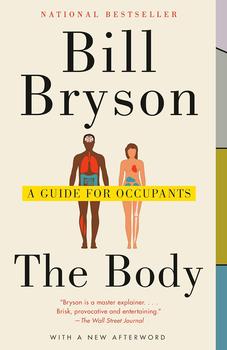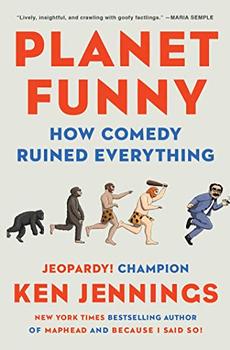Summary | Excerpt | Reviews | Read-Alikes | Genres & Themes | Author Bio

The ultimate journey to discover how we went from there being nothing at all to there being something, and then how a little of that something turned into us, and also what happened in between and since.
Bill Bryson is one of the world's most beloved and bestselling writers. In A Short History of Nearly Everything, he takes his ultimate journey–into the most intriguing and consequential questions that science seeks to answer. It's a dazzling quest, the intellectual odyssey of a lifetime, as this insatiably curious writer attempts to understand everything that has transpired from the Big Bang to the rise of civilization. Or, as the author puts it, "…how we went from there being nothing at all to there being something, and then how a little of that something turned into us, and also what happened in between and since." This is, in short, a tall order.
To that end, Bill Bryson apprenticed himself to a host of the world's most profound scientific minds, living and dead. His challenge is to take subjects like geology, chemisty, paleontology, astronomy, and particle physics and see if there isn't some way to render them comprehensible to people, like himself, made bored (or scared) stiff of science by school. His interest is not simply to discover what we know but to find out how we know it. How do we know what is in the center of the earth, thousands of miles beneath the surface? How can we know the extent and the composition of the universe, or what a black hole is? How can we know where the continents were 600 million years ago? How did anyone ever figure these things out?
On his travels through space and time, Bill Bryson encounters a splendid gallery of the most fascinating, eccentric, competitive, and foolish personalities ever to ask a hard question. In their company, he undertakes a sometimes profound, sometimes funny, and always supremely clear and entertaining adventure in the realms of human knowledge, as only this superb writer can render it. Science has never been more involving, and the world we inhabit has never been fuller of wonder and delight.
The adult version of a children's thousand amazing facts book - indispensable, understandable, funny and timely. Bryson, writer extraordinaire and self professed science phobic, has successfully turned his hand to making all things scientific comprehensible to mere mortals - including geology, chemistry, paleontology, astronomy, and particle physics.

If you liked A Short History of Nearly Everything, try these:

by Bill Bryson
Published 2021
Bill Bryson, bestselling author of A Short History of Nearly Everything, takes us on a head-to-toe tour of the marvel that is the human body. As addictive as it is comprehensive, this is Bryson at his very best, a must-read owner's manual for everybody.

by Ken Jennings
Published 2019
From the brilliantly witty and exuberant New York Times bestselling author Ken Jennings, a history of humor - from fart jokes on clay Sumerian tablets all the way up to the latest Twitter gags and Facebook memes - that tells the story of how comedy came to rule the modern world.